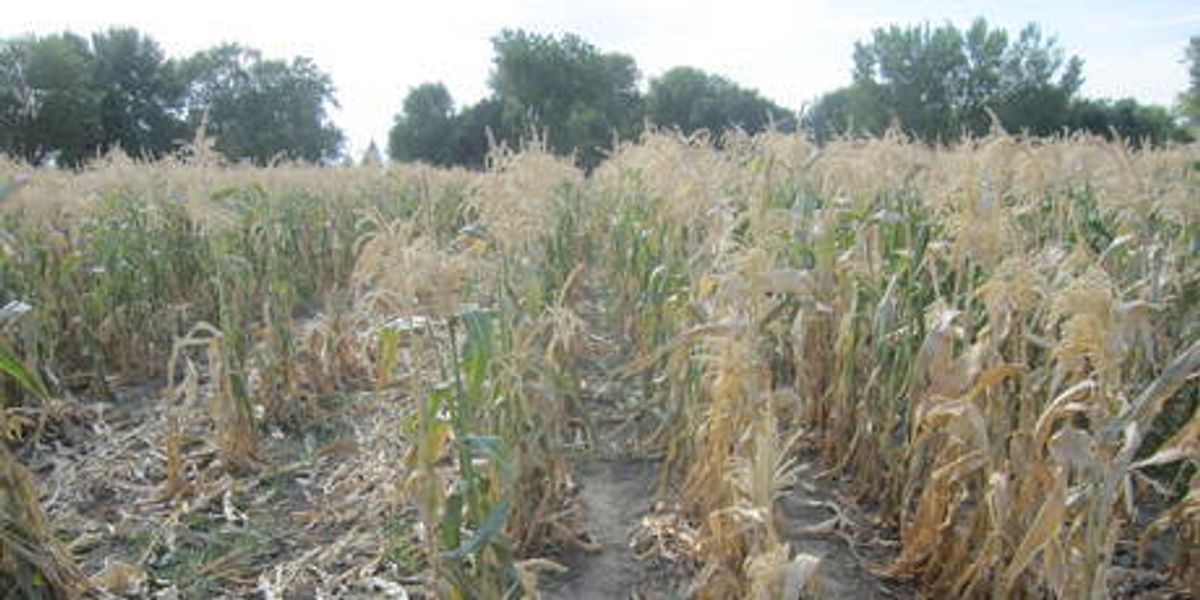It's not often the Wall Street Journal sings the praises of the United Nations and global bureaucracies, but that's just what it did last week, in an editorial citing calls by organizations like the U.N. Food and Agriculture Organization (FAO) for an end to corn ethanol subsidies. "Remove provisions of current national policies that subsidize (or mandate) biofuels production or consumption,." advised the FAO and ten other international organizations, after the G20 advanced industrial countries asked them to take a position in 2010.
What prompted the Journal's article is of course the drought that has been ravaging the U.S. corn crop and threatening soybean and wheat harvests as well. U.S. livestock producers are lobbying the Environmental Protection Agency to temporarily suspend the Renewable Fuels Standard, as consumers fret over just how much rising corn ethanol prices are contributing to the summer run-up in gasoline prices.
U.S. Agriculture Secretary Tom Vilsack has said that the impact of the corn crisis on U.S. grocery prices will be surprisingly modest, as money going to farmers represents but a small fraction of the prices we see on grocery shelves. But the global effects of scarce food may be more severe. The G20 countries have called for a meeting this fall to assess what can be done to mitigate the drought's ill effects.
"G20 officials emphasized the planned meeting was not a sign of panic," reports the Financial Times of London. "On the contrary, they said, it would be an attempt to avoid the kind of policies, including export restrictions and hoarding that in 2007-08 transformed a shortage of agricultural commodities into the first full-blown food crisis in 30 years with riots in two dozen countries."
The U.S. Agriculture Department, in its most recent assessment, found that corn yields are at their lowest since 1995, and that the world as a whole faces shortages of maize, wheat, and soybeans, partly because Russia and Kazakhstan are also suffering drought conditions that are affecting their respective wheat crops.
Showing something of a tin ear, the U.S. corn ethanol lobby has taken the position that the impact of the drought on gasoline prices will be small, and that there is no need for the EPA to waive the renewable fuel standard. With 40 percent of U.S. corn crops already going to ethanol production, the biofuel industry is now calling for the blend in gasoline to be raised from 10 percent to 15 percent.
Yet best estimates are that higher corn prices accounted for roughly a quarter of July's 16-cents-per-gallon increase in U.S. gasoline prices. With experts predicting that gas prices could go up another 20 cents per gallon before the end of summer, the escalating cost of automotive fuel threatens to become a national campaign issue, with uncertain consequences.
Least affected, ironically, is the American farmer—or, if you prefer, U.S. agribusiness. This is partly because those with corn to sell are benefiting handsomely from the sharp increases in prices; those without are generally insured against crop failure, with the U.S. government as insurer of last resort. Though one may wonder what the impact of the current crisis will be on the long-term cost and availability of insurance, those living in the U.S. plains states do not seem to be worrying. On a recent drive through the country's drought-struck plains states, one heard and saw just one refrain on the local radio stations and in the town newspapers: "We've coped before and we'll cope again."
Photo: Withered corn in Elk Point, a small town in southeastern South Dakota near the Iowa and Nebraska borders.



